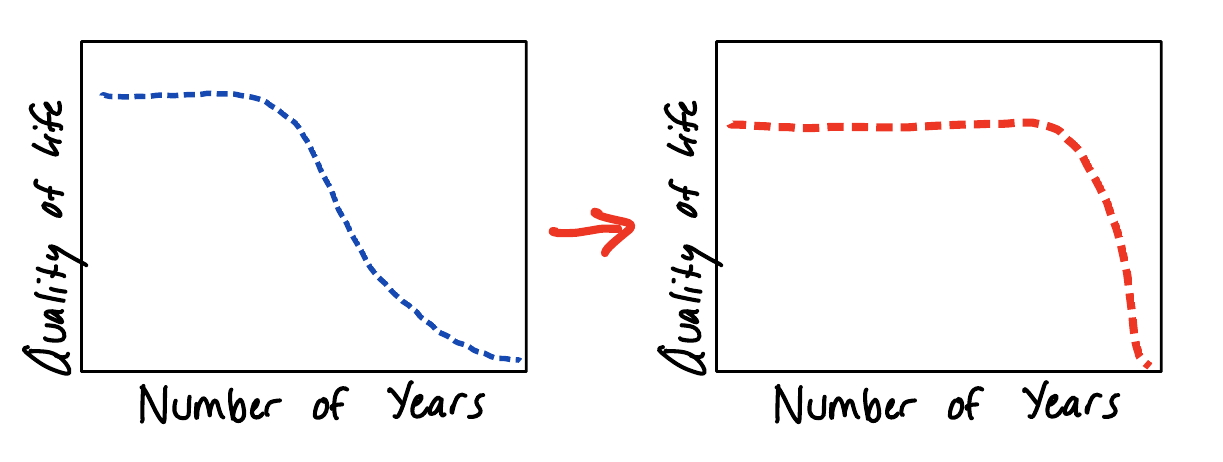P – H – Done
As I finish up my PhD at Stanford and consider my next career moves, I’m positive I want to work at a small and rapidly growing biotech startup. After many interviews and some serious introspection, I settled on working at Loyal, a biotech company dedicated to extending the lifespan of dogs by developing therapeutics. It seems like a crazy idea at first, but the core thesis of doing aging research in companion canines makes a lot of sense.
I believe the aging field is at an inflection point – it’s where the microbiome research was 10 years ago. Back then, 16S rRNA sequencing was the state of the art, and the only question researchers were commonly asking of microbial communities was “who’s there.” We’ve since come to appreciate the ecological complexity of the microbiome, developed new genomic ways to study the identities and function of it’s members, and engineered microbiome therapeutics that are starting to show signs of efficacy.
At the core of the aging thesis is the idea that aging is a disease. After all, age is the largest risk factor for death, cancer, dementia, etc. Re-framing aging as a disease allows for completely new investigations, but will not be easy from a regulatory perspective.
Lifespan vs healthspan
“Why would you want to extend the number of years someone is sick at the end of their life?”
This question is frequently asked by those unfamiliar with aging research. However, I don’t believe many in the field have a desire to prolong an unhealthy end of life. Extension of lifespan is not valuable if the extra years are not lived well. Many researchers are interested in healthspan, the number of years lived in a good state of health. One way to picture this is to imagine a “rectangularization” of the survival curve. A drug that prolongs the number of years lived in good health would be very valuable, even if it had no impact on life expectancy.

Rectangularization of the survival curve – The lines should both be the same height to start, but you get the idea.
What about the ethical implications?
News about advancements in aging research are often accompanied by fear: “won’t this just make rich people live longer?” After all, immortality has been a quest for millennia. I don’t buy into many of these criticisms, for a few reasons. First, lifespan is already very stratified by income, and the wealthiest individuals already have access to advanced therapies and care that others lack. Second, advances in lifespan and healthspan are likely to be slow. No immortality drug will be developed overnight. Third, many researchers are working to develop drugs for aging that are cheap and commoditized. The CEO of Loyal, Celine Halioua, has written about this at length.
I’m not new to the aging field!
Back in my undergrad research at Brown, I worked in Nicola Neretti’s lab, which was focused on the genetic and epigenetic pathways of aging. The main paper I contributed to in undergrad studied the chromatin organization of cells as they progressed into senescence – a cellular version of aging slowdown. It’s great to be back!
What’s going on at Loyal?
I’ll be working on everything related to genomics and bioinformatics related to dogs. This means sequencing blood and saliva samples from our laboratory and companion animals, quantifying aging at the genetic and epigenetic level, building better epigenetic clocks, and researching the breed-specific epigenetic changes that accompany aging in certain dogs. It’s exciting and fast paced. And we’re hiring more! Whether your background is in aging science, vet med, computer science, or business operations, we need talented people. Drop me a line if you want to talk more.